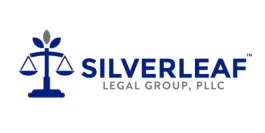In the ever-evolving landscape of regulations and compliance, staying informed is crucial for small business owners to safeguard their operations and maintain transparency. With the enactment of the Corporate Transparency Act (CTA) in 2021, a new regulatory framework has been set in motion, impacting businesses across the United States. At Silverleaf Legal Group, PLLC, we understand the importance of compliance and aim to assist small businesses in navigating the complexities of the CTA to ensure seamless adherence to its requirements.
Understanding the Corporate Transparency Act: The Corporate Transparency Act, set to go into effect in January 2024, introduces significant changes aimed at combating illicit activities such as tax fraud, money laundering, and terrorism financing. One of the key provisions of the CTA is the requirement for certain U.S. businesses to submit a Beneficial Ownership Information (BOI) Report to the Financial Crimes Enforcement Network (FinCEN), a bureau of the U.S. Department of Treasury.
Who Needs to Comply? Businesses that meet specific criteria outlined in the CTA must comply with the reporting requirements. These criteria typically revolve around the establishment date of the business and its ownership structure. It’s essential for business owners to determine whether their company falls within the scope of the CTA to ensure timely and accurate compliance.
What Information is Required?

The information required in the BOI report varies based on the establishment date of the business. For companies established post-January 1, 2024, details such as the legal name, trademarks, addresses, and identification numbers of beneficial owners and company applicants must be provided. However, for businesses established before this date, certain exemptions may apply, particularly regarding company applicants.
Important Deadlines: Compliance deadlines under the CTA are crucial to adhere to. For businesses established before January 1, 2024, the initial filing deadline is January 1, 2025. Those formed between January 1, 2024, and January 1, 2025, have 90 days from either the notice of formation or public announcement to file. Businesses established on or after January 1, 2025, must submit their reports within 30 days of formation notification or public announcement.
Seeking Expert Guidance: While filing BOI reports may seem straightforward, the intricacies of compliance can be daunting for small business owners already juggling multiple responsibilities. At Silverleaf Legal Group, PLLC, we emphasize the importance of seeking expert guidance to ensure compliance with FinCEN’s standards. Consulting with knowledgeable advisors, such as attorneys or accountants, can alleviate the burden of compliance and mitigate the risk of errors or delays in filing.
In the words of FinCEN, ‘Filing is simple, secure, and free of charge.’ Beneficial ownership information reporting is not an annual requirement, and FinCEN is committed to providing America’s small businesses with the resources and information they need to make filing as quick and easy as possible.
As the Corporate Transparency Act comes into effect, small business owners must proactively navigate its requirements to avoid potential penalties and ensure continued operations.

At Silverleaf Legal Group, PLLC, we are committed to assisting businesses in understanding and fulfilling their obligations under the CTA. By providing tailored guidance and expertise, we empower entrepreneurs to thrive in an increasingly regulated business environment. Contact us today to learn more about how we can support your compliance efforts and protect your business interests.



